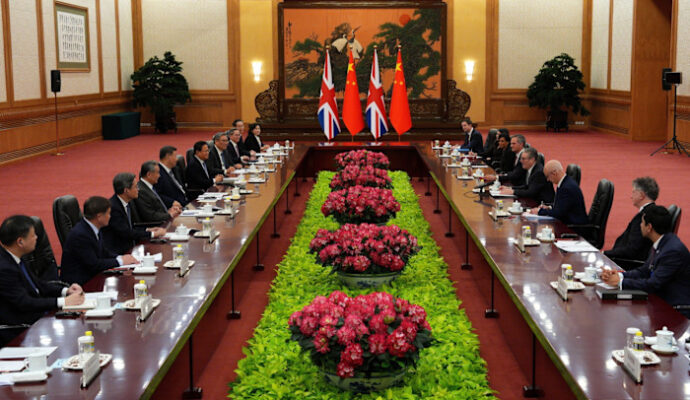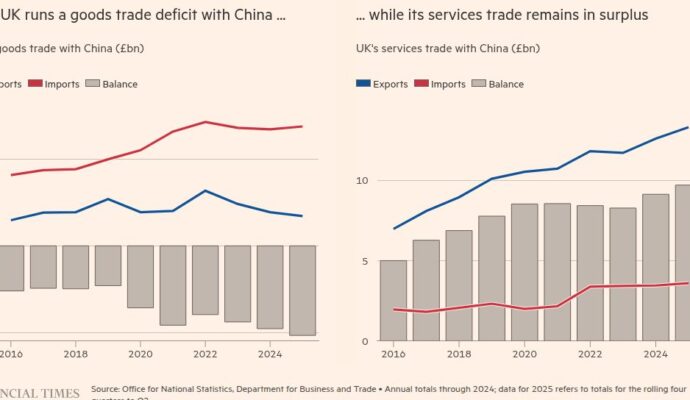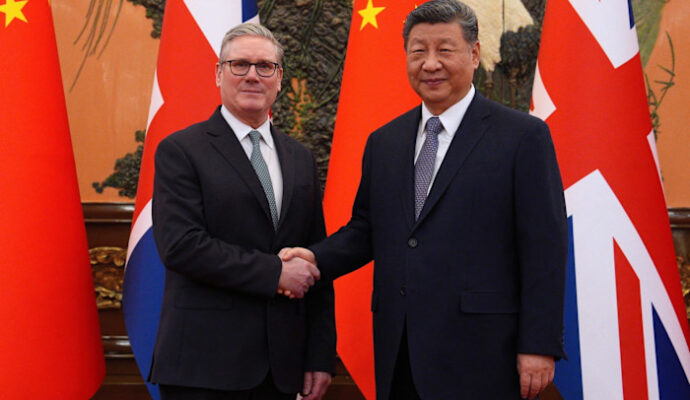
Stay informed with free updates
Simply sign up to the Equities myFT Digest — delivered directly to your inbox.
US stock markets rebounded on Monday after Donald Trump appeared to row back from his threat to impose punishing new tariffs on Chinese imports, saying that the US “wants to help China, not hurt it!!!”
The S&P 500 index was 1.5 per cent higher in early trade, partially recovering after Trump sparked a 2.7 per cent drop on Friday — the Wall Street benchmark’s biggest one-day sell-off since April — by threatening to impose additional 100 per cent tariffs on China.
The tech-heavy Nasdaq Composite rose 1.9 per cent, buoyed by a 9.4 per cent jump in shares in semiconductor giant Broadcom after it agreed to sell 10 gigawatts of chips to OpenAI. Chip designer Nvidia rose 3 per cent and chipmaker AMD was up 3.7 per cent.
The Nasdaq Composite fell 3.6 per cent on Friday as investors worried that the tariff threat could reignite the global trade war that rocked markets earlier this year. Trump also suggested he could cancel a planned summit with President Xi Jinping later this month, in response to a package of export controls on rare earths that Beijing unveiled last week
The moves came after Trump on Sunday wrote in a post on his Truth Social platform: “Highly respected President Xi just had a bad moment. He doesn’t want Depression for his country, and neither do I. The U.S.A. wants to help China, not hurt it!!!”
Monday’s reaction showed investors’ optimism that much higher tariffs can be avoided, analysts said.
“The last 72 hours show there is still scope for a negotiated agreement or just the current situation to be rolled forward,” said Geoffrey Yu, a senior strategist at BNY in London.
Markets in Europe, which had experienced smaller falls on Friday, also steadied. The Stoxx Europe 600 was 0.2 per cent higher by mid-afternoon. France’s Cac 40 and Germany’s Dax each also rose slightly while the FTSE 100 was marginally lower.
“This is the kind of dip we’ve been waiting for” as a buy signal, said analysts at HSBC. “Fundamentally, little has changed,” they added, citing the time still left for US-China negotiations and steps already being taken by big companies to mitigate tariffs.
Asian stocks, which had closed before Trump issued his threats on Friday, fell sharply on Monday in spite of Trump’s more accommodative tone. Hong Kong’s Hang Seng index dropped 1.5 per cent, Japan’s Topix fell 1.9 per cent and Taiwan’s Taiex lost 1.4 per cent. Mainland China’s CSI 300 index closed 0.5 per cent lower.
“The context matters,” said Arun Sai, senior multi-asset strategist at Pictet. “Investors were already nervous about market valuations, the AI bubble — when we’re trading on these valuation levels, it’s fair to have a knee-jerk reaction.”
Bum Ki Son, a senior regional economist at Barclays in Singapore, said economies in Asia were “among the most exposed to trade and China uncertainties compared to other regions”.
The moves came after Beijing criticised Trump’s plan to impose additional tariffs and threatened new countermeasures on Sunday. “China’s position on tariff wars has been consistent: we do not want to fight but we are not afraid to fight,” said the commerce ministry.
The price of gold, often seen as a haven asset, hit an all-time high of $4,090 a troy ounce, extending a rally in which the price has risen more than 50 per cent this year.
Additional reporting by Ian Smith in London


